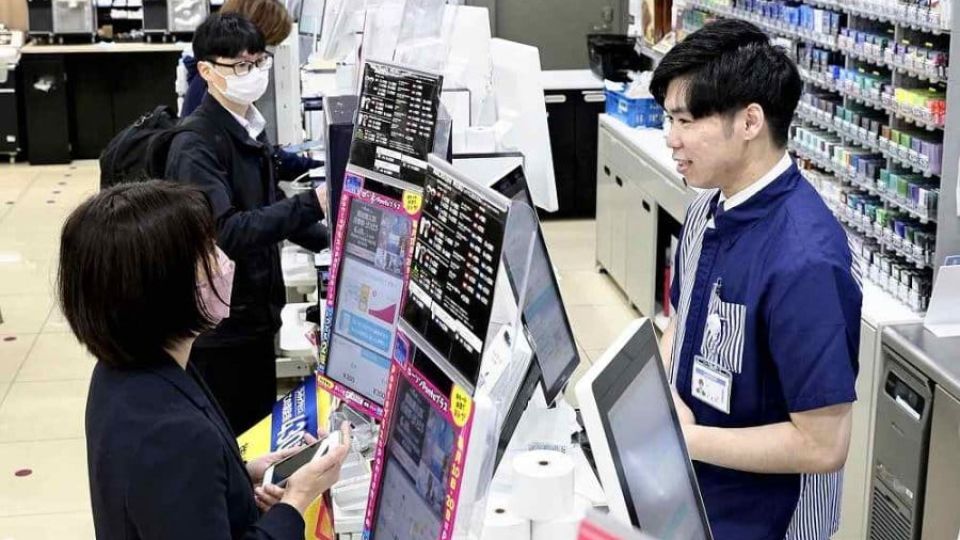May 9, 2023
TOKYO – COVID-19 has been recategorized as a Category V infectious disease as of Monday, placing it at the same level as that of seasonal influenza.
As a result of the change, various restrictions imposed by the central and local governments have ended, and individuals are basically allowed to freely make judgments over how to prevent and recover from infection.
Japan’s response to the novel coronavirus has shifted to be in line with normalizing circumstances about three years and four months since the first infected person was confirmed in the country in January 2020.
“Though I want people to continue to be careful of getting infected, it is no longer a request by the central government,” health minister Katsunobu Kato said Sunday. “Each person makes their own judgment on how to handle it.”
The Infectious Diseases Law sorts diseases into five categories — Category I to V — in accordance with degree of danger.
COVID-19 had been placed in a special category of “new types of influenza and other infectious diseases” equivalent to a Category II disease.
Until the change, prefectural governors were authorized by law to demand that infected people refrain from going out or that they recuperate at home, and to recommend or instruct that patients with serious symptoms be hospitalized.
From Monday, the governors are no longer authorized to do so, and individuals can make their own judgments. As a reference, however, the Health, Labor and Welfare Ministry recommends that people refrain from going out “within five days” of symptoms such as fever appearing.
People who have close contact with infected people are no longer required to stay home and isolate from others.
Payments at hospitals for treatment of COVID-19 have now become the burden of patients, in principle. Measures to lower the financial burden of medicines and hospitalization will remain in place until the end of September.
From October, the government will decide whether to keep or change the measures by considering how fair they are compared to other diseases.
Shots of COVID-19 vaccines are being offered free until the end of March 2024. The government will consider what to do about these vaccinations from April.
The system of treating COVID-19 patients only at limited kinds and numbers of hospitals has ended. There is a gradual shift to a normal phase in which more hospitals can accept hospitalization and outpatients for cases of COVID-19.
The government will complete preparations to ensure that about 8,300 medical institutions can hospitalize up to about 57,600 patients by the end of September.
The system to confirm the number of new COVID-19 patients daily has ended, and from now on, the numbers will be counted at specific sites. The total number of new patients at about 5,000 hospitals is reported every week.
In addition, the special measures law against new strains of influenza is no longer applied to COVID-19, thus the government cannot declare a state of emergency or take similar action.
Daily infection prevention measures, such as whether to wear a mask, have already been left up to the individual.
The central and local governments also cannot issue recommendations or instructions over infection prevention measures based on the special measures law.

